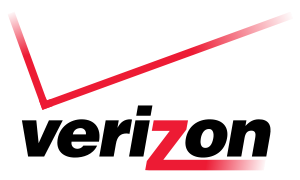

WE are increasingly being warned by very clever people that the US government (which practically means US-based mega-corporations) has taken over the Internet [1], which translates to ever-eroding rights on the Web, including the right to anonymity [2]. These are unprecedented attacks on civil liberties -- moves which ban what was legal in the analogue/physical world. Thanks to the villains from Verizon [3-5], network neutrality is rapidly going away (network neutrality helps avoid a form of 'soft' censorship). Verizon is a very malicious company which helps spy on innocent citizens all over the world, including US citizens [6]. It didn't even put up a fight to prevent this. Remember these factors and facts, internalising them a reason to boycott Verizon. Don't forget what Verizon did with Microsoft, either.
"Verizon is a very malicious company which helps spy on innocent citizens all over the world, including US citizens."We in Europe are suffering from the disturbing trend of politics in the US (corporate-driven policies). The Web is being abducted away from the people and turned into a surveillance device against them; hardly anything good is emerging on the Web these days, except more surveillance like 'cloud' ('free' storage), Google tracking ('free' tools), Microsoft's warrantless eavesdropping ('free' calls), and Facebook (volunteer/crowdsource-type informants resource). It's not amusing and those who don't yet grasp the impact on society one day will.
While the European authorities are bickering and fighting over costs (not policies), as revealed earlier this month [7-8] amid PR from Neelie Kroes [9], the Web in Europe becomes more censorship-leaning [12] and privatised entities for managing the Net find new ways to make more money, even here in the UK [13]. Neelie Kroes ought to explain herself or retract some of her words and actions. Why she's doing this is beyond many; some think she has been bamboozled by mega-corporations through lobbyists. If that is the case, she ought to reverse course immediately; what she is doing right now severely discredits the European Commission. ⬆
Related/contextual items from the news:
The NSA has undermined a fundamental social contract. We engineers built the internet – and now we have to fix it
Americans can be very divided about technology—Apple versus Google versus Microsoft, cloud versus local, and the list goes on. But it turns out we mostly agree on one thing: There's no such thing as Internet anonymity.
In December 2010, the Federal Communications Commission adopted the Open Internet Order, enshrining the concept of "network neutrality"—that Internet Service Providers must treat all data on the Internet equally—into law.
Although wireless broadband was exempt from many of its restrictions, the FCC's net neutrality law says that fixed broadband providers "may not block lawful content, applications, services, or non-harmful devices" or practice "unreasonable discrimination" that slows content down or degrades its quality. They also must disclose information about their network management practices.
ISPs don't like this, naturally, but Verizon has objected most strenuously of all. The company sued to halt the Open Internet Order, and after a couple of years' worth of legal filings, the case is now set to be decided by the US Court of Appeals for the District of Columbia Circuit.
The carrier wants to charge websites for carrying their packets, but if they win it'd be the end of the Internet as we know it
It’s difficult to predict how an appeals court will rule after it hears arguments Monday in Verizon Communication’s challenge of the U.S. Federal Communications Commission’s net-neutrality rules.
This is hardly a surprise. We'd already pointed out that, while the internet companies had been very vocal about the NSA surveillance efforts, there had been a deafening silence from the likes of Verizon and AT&T. In fact, it later came out that the telcos actually volunteered to share this information, and when the tech companies reached out to get them to sign onto a letter asking the government to be more transparent, AT&T and Verizon refused to sign on.
The European Commission will push ahead with totally eradicating mobile roaming fees and has already drawn up a piece of draft legislation, according to a leaked document.
EU commission legislation would introduce flat rate call charges, but big network providers say changes could cost them €7bn
Comments
Needs Sunlight
2013-09-20 16:50:43
Dr. Roy Schestowitz
2013-09-20 16:57:27